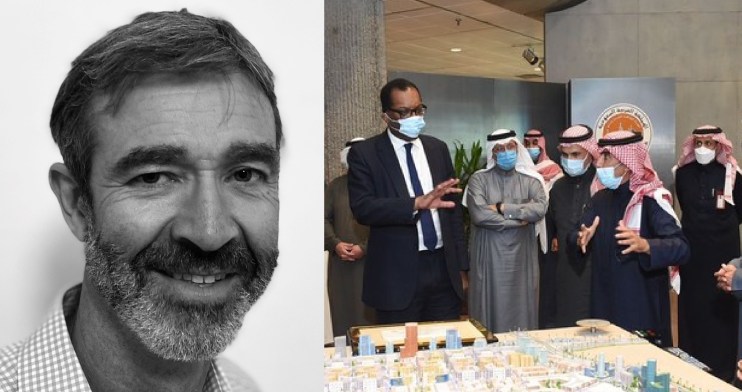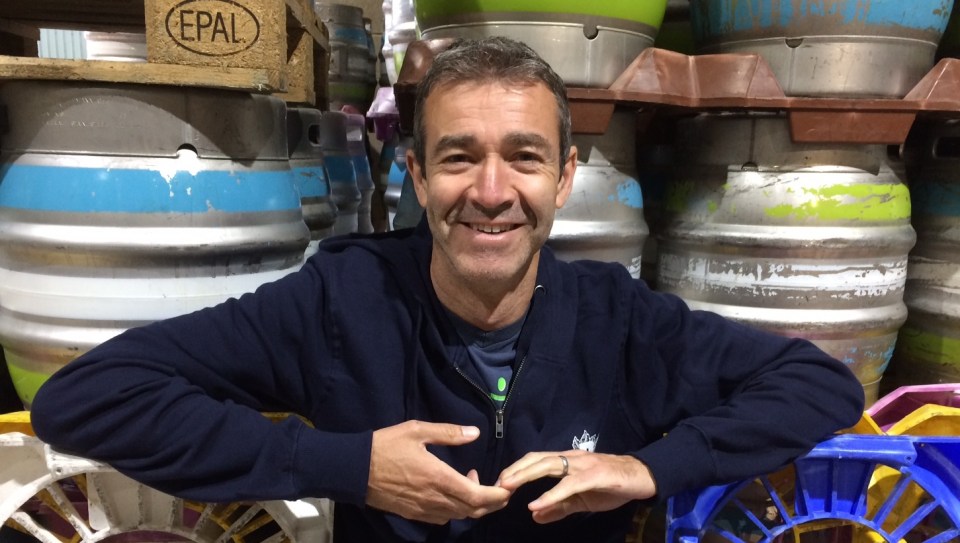Storegga chief on Kwasi Kwarteng’s recent trade mission to Saudi Arabia: ‘A fabulous opportunity for the UK’

London-based Nick Cooper, who is the chief executive officer of Storegga, developing decarbonisation projects around the world, recently returned from a UK Government trade mission to the Kingdom of Saudi Arabia.
The delegation was led by by Rt Hon Kwasi Kwarteng MP, Secretary of State at the Department of Business, Energy and Industrial Strategy.
The trip was cantered on Saudi Arabia’s energy transition and how they could use UK decarbonisation technologies and expertise to help their ambitious plans to be net zero by 2060.
This is a relatively big move for the world’s biggest oil producer so a good time for City A.M. to talk to Cooper about the trip.
What was the purpose of the trip to Saudi Arabia?
The trip was a UK trade delegation, in the wake of COP26 in Glasgow in November 2021. The goal of the trip was to establish and strengthen meaningful trade routes to help Saudi Arabia and indeed the world decarbonise. Climate change is a global problem, we are all breathing the air from one atmosphere.
“Only through cooperation and collaboration will we have any chance of addressing climate change meaningfully.”
Nick Cooper
And the UK has a really important part to play in this global effort. In specific areas of the decarbonisation industry, the UK is leading the rest of the world, and the trip was an opportunity for us to define and explain our carbon management expertise.
Who went from the UK and why were you involved?
It was a joint mission between the Foreign, Commonwealth & Development Office and the Department of International Trade, led by Rt Hon Kwasi Kwarteng MP, Secretary of State at the Department of Business, Energy and Industrial Strategy. I was invited to attend as the lead developer of the UK’s Scottish Cluster Carbon Capture & Storage project.
“Saudi Arabia is planning a series of carbon capture & storage projects, which have similarities to the aspects of the Scottish Cluster and the East Coast Cluster.”
Nick Cooper
The project features the capture of CO2 from power stations and heavy industry, it also features hydrogen and Europe’s first at scale direct air capture (DAC) capability. The project has enormous potential to remove large volumes of CO2 from the atmosphere. The Scottish Cluster was of interest particularly due to its blue hydrogen plant, whereby natural gas is reformed to produce hydrogen and the CO2 is separated and stored, its ability to import shipped CO2 from other locations and its DAC plant, which will suck CO2 out of the atmosphere and be stored permanently underground.

This is a fabulous opportunity for the UK with big potential. Projects of the scale planned by Saudi Arabia will be an enormous creator of jobs both domestically, but also in the UK supply chain.
Nick Cooper
What can UK companies do to help Saudi Arabia decarbonise?
Put simply, the UK, with the support of the UK Government is leading the world in its industrial and carbon capture and storage ‘Cluster’ model and there are many lessons to be learnt from this process.
“There are strong diplomatic and business links between Saudi Arabia and the UK.”
Nick Cooper
A collaboration would allow the Kingdom to share the lessons we have learnt and benefit from our more advanced and mature model and supply chain. Collaboration is the key to success when it comes to net zero and I was really impressed by the scale of Saudi Arabia’s ambition and its openness to learn lessons from advanced projects like the Scottish Cluster and East Coast Cluster. This could offer opportunity to the UK too, an opportunity to export technology, knowledge and skills from the United Kingdom.
Which renewable energy and carbon reduction technologies are likely to work best over there?
Solar and wind, where Saudi Arabia already has a series of sizeable projects, will drive low-cost renewable electricity. A derivative of renewable electricity is green hydrogen, whereby hydrogen is produced by splitting water into hydrogen and oxygen. These projects are expected to be sited on the Red Sea coast.
“The UK is seen as a leader in decarbonisation progress, and trips like this help us to define our position within the global decarbonisation community.”
Nick Cooper
Rather like the UK Government has done with its Cluster Sequencing Process, the Saudis are considering large scale CCS applications on the Gulf Coast where existing oil and gas infrastructure can be found. Large scale CCS will help the country decarbonise their hard to abate industries such as construction, chemicals and manufacturing to help meet their national net zero target by 2060 and help decarbonise their very considerable hydrocarbon exports.
Does this have the potential to drive employment and growth in the UK?
The collaboration is a fabulous opportunity for the UK with big potential. If you consider that the first phase of the Scottish Cluster is set to create 15,000 direct jobs in Scotland and many more thousand indirect jobs, CCS projects of the scale planned by Saudi Arabia will be an enormous creator of jobs both domestically, but also in the UK supply chain. Job creation is a vital component of the transition away from oil and gas.
Did you leave with hope that Saudi Arabia, the world’s largest oil producer has any chance of meeting their net zero target of 2060?
I left Saudi Arabia impressed by the scale and ambition of their plans. And I left hopeful. Dramatic changes are already happening, and they certainly have the potential to get to net zero by or even before 2060. We live in one world, and we are facing one sizeable problem, we all need to work together.